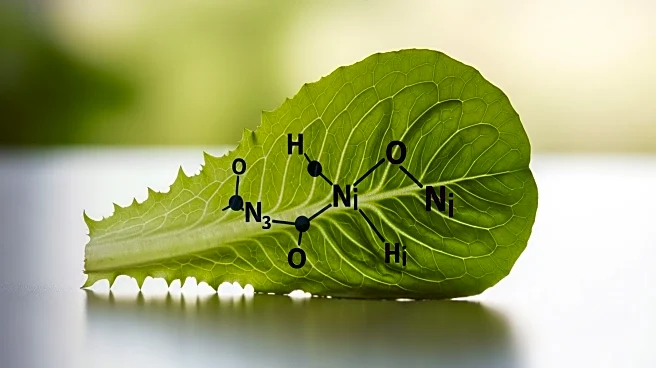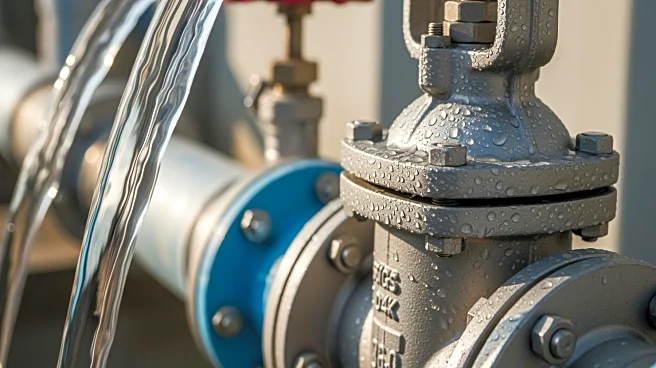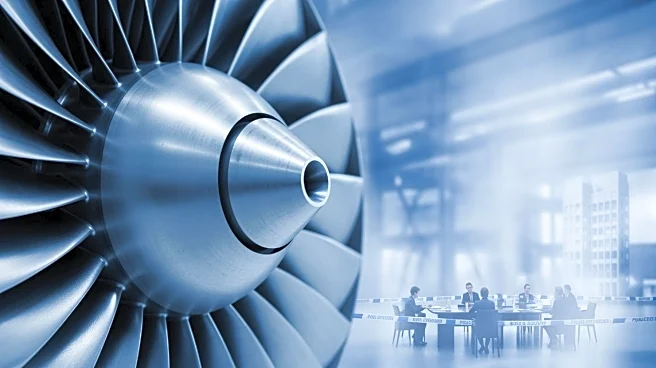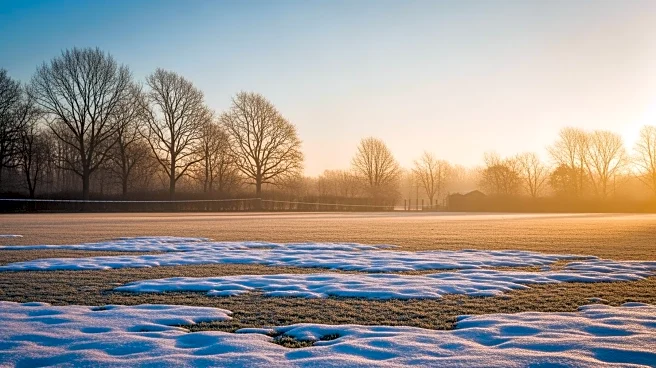What is the story about?
What's Happening?
Rijk Zwaan, a Netherlands-based company, is pioneering the development of lettuce varieties that require significantly less nitrogen fertilizer. This initiative, led by Lettuce Breeder Wim van Vliet, began eight years ago with the aim of reducing nitrogen pollution, which is a major environmental concern in Europe. Nitrogen compounds from fertilizers contribute to soil, water, and air pollution, and excessive nitrate levels can harm biodiversity and water quality. Rijk Zwaan's efforts align with European Commission regulations aimed at protecting the environment. The company has been conducting trials to develop robust lettuce varieties that can thrive with reduced nitrogen inputs, thereby addressing both environmental and economic challenges faced by growers.
Why It's Important?
The development of low-nitrogen lettuce varieties is significant for several reasons. Environmentally, it addresses the pressing issue of nitrogen pollution, which contributes to greenhouse gas emissions and water contamination. Economically, it offers a solution to the rising costs of fertilizers, driven by increased fuel prices. For growers, adopting these new varieties could lead to cost savings and compliance with stricter environmental regulations. This innovation could set a precedent for other crops, promoting sustainable agricultural practices and reducing the agricultural sector's environmental footprint. The success of Rijk Zwaan's initiative could influence policy and industry standards, encouraging broader adoption of low-nitrogen farming techniques.
What's Next?
Rijk Zwaan plans to expand its trials to gather more data on the performance of these low-nitrogen varieties across different regions and soil types. This includes trials in Germany and Spain, as well as collaborations with growers. The company aims to quantify the exact reduction in nitrogen needs for their varieties, providing growers with specific guidelines. As these trials progress, the company hopes to offer guarantees to growers about the reduced nitrogen requirements of their lettuce varieties. This could lead to wider adoption and potentially influence agricultural practices and policies on a larger scale.
Beyond the Headlines
The shift towards low-nitrogen agriculture could have broader implications for global food security and climate change mitigation. By reducing reliance on synthetic fertilizers, the agricultural sector can decrease its carbon footprint and contribute to more sustainable food systems. This approach also highlights the importance of innovation in plant breeding and the potential for science to address complex environmental challenges. As more companies and countries adopt similar practices, it could lead to a significant reduction in agricultural pollution and a move towards more resilient and sustainable farming systems.














